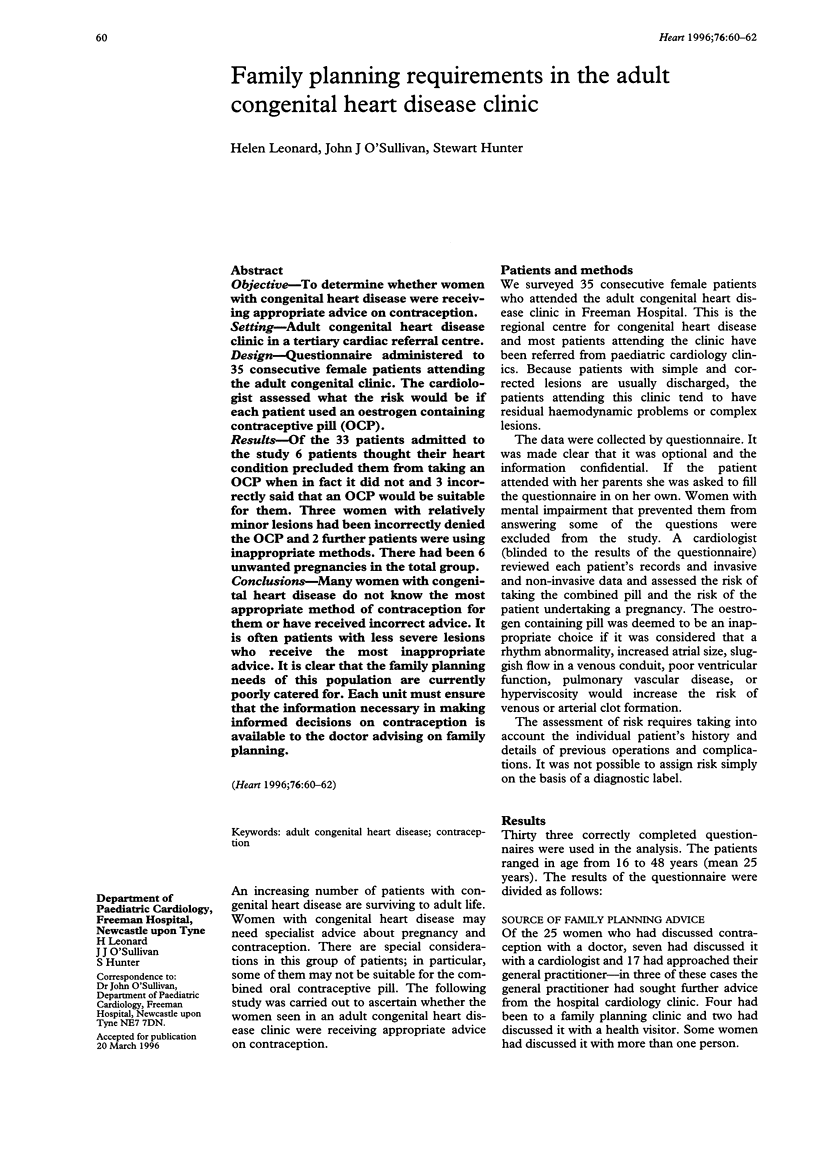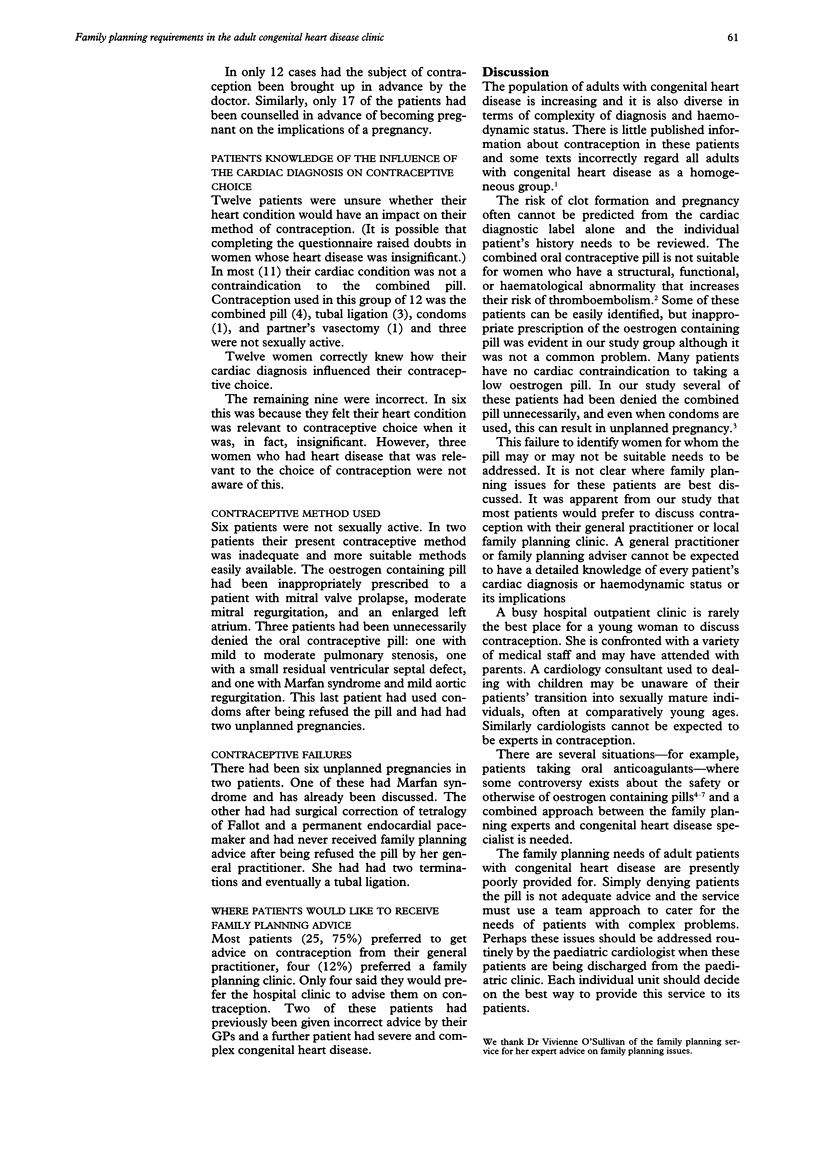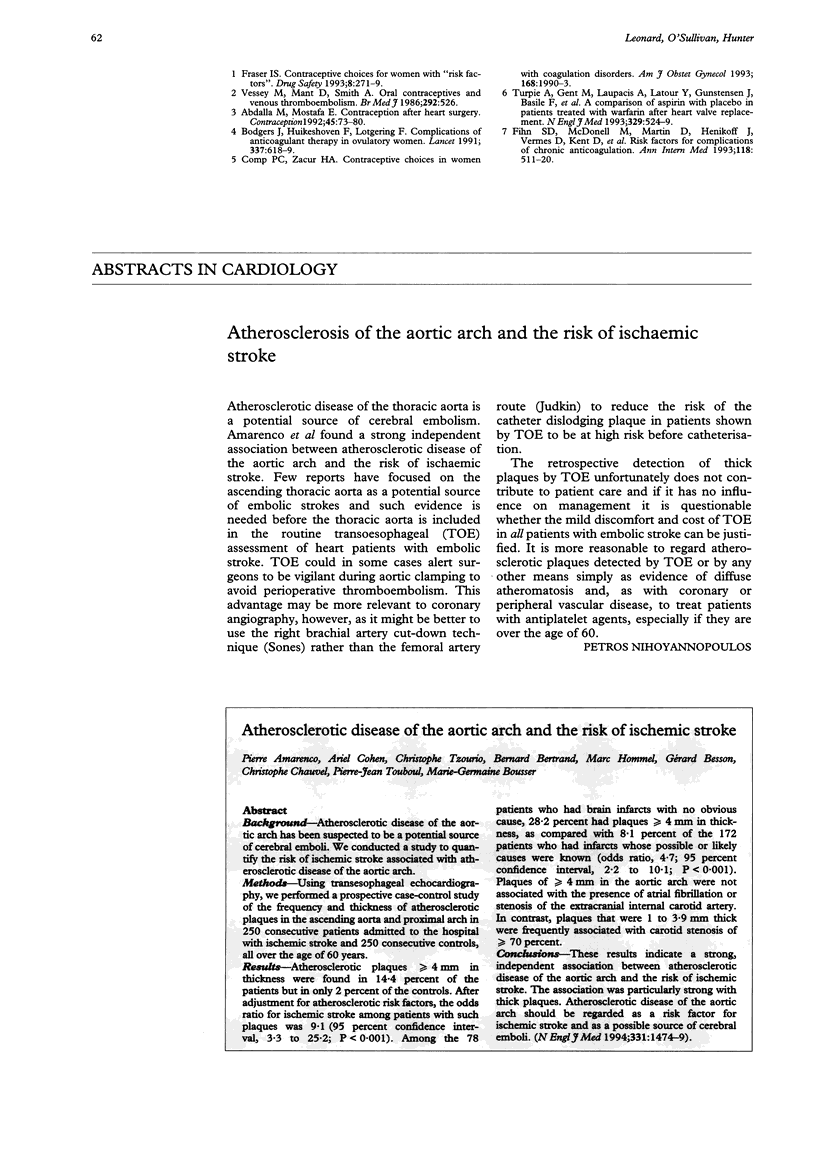Abstract
OBJECTIVE: To determine whether women with congenital heart disease were receiving appropriate advice on contraception. SETTING: Adult congenital heart disease clinic in a tertiary cardiac referral centre. DESIGN: Questionnaire administered to 35 consecutive female patients attending the adult congenital clinic. The cardiologist assessed what the risk would be if each patient used an oestrogen containing contraceptive pill (OCP). RESULTS: Of the 33 patients admitted to the study 6 patients thought their heart condition precluded them from taking an OCP when in fact it did not and 3 incorrectly said that an OCP would be suitable for them. Three women with relatively minor lesions had been incorrectly denied the OCP and 2 further patients were using inappropriate methods. There had been 6 unwanted pregnancies in the total group. CONCLUSIONS: Many women with congenital heart disease do not know the most appropriate method of contraception for them or have received incorrect advice. It is often patients with less severe lesions who receive the most inappropriate advice. It is clear that the family planning needs of this population are currently poorly catered for. Each unit must ensure that the information necessary in making informed decisions on contraception is available to the doctor advising on family planning.
Full text
PDF


Selected References
These references are in PubMed. This may not be the complete list of references from this article.
- Abdalla M. Y., el Din Mostafa E. Contraception after heart surgery. Contraception. 1992 Jan;45(1):73–80. doi: 10.1016/0010-7824(92)90143-h. [DOI] [PubMed] [Google Scholar]
- Bogers J. W., Huikeshoven F. J., Lotgering F. K. Complications of anticoagulant therapy in ovulatory women. Lancet. 1991 Mar 9;337(8741):618–619. doi: 10.1016/0140-6736(91)91687-p. [DOI] [PubMed] [Google Scholar]
- Comp P. C., Zacur H. A. Contraceptive choices in women with coagulation disorders. Am J Obstet Gynecol. 1993 Jun;168(6 Pt 2):1990–1993. doi: 10.1016/s0002-9378(12)90940-0. [DOI] [PubMed] [Google Scholar]
- Fihn S. D., McDonell M., Martin D., Henikoff J., Vermes D., Kent D., White R. H. Risk factors for complications of chronic anticoagulation. A multicenter study. Warfarin Optimized Outpatient Follow-up Study Group. Ann Intern Med. 1993 Apr 1;118(7):511–520. doi: 10.7326/0003-4819-118-7-199304010-00005. [DOI] [PubMed] [Google Scholar]
- Fraser I. S. Contraceptive choice for women with 'risk factors'. Drug Saf. 1993 Apr;8(4):271–279. doi: 10.2165/00002018-199308040-00002. [DOI] [PubMed] [Google Scholar]
- Turpie A. G., Gent M., Laupacis A., Latour Y., Gunstensen J., Basile F., Klimek M., Hirsh J. A comparison of aspirin with placebo in patients treated with warfarin after heart-valve replacement. N Engl J Med. 1993 Aug 19;329(8):524–529. doi: 10.1056/NEJM199308193290802. [DOI] [PubMed] [Google Scholar]
- Vessey M., Mant D., Smith A., Yeates D. Oral contraceptives and venous thromboembolism: findings in a large prospective study. Br Med J (Clin Res Ed) 1986 Feb 22;292(6519):526–526. doi: 10.1136/bmj.292.6519.526. [DOI] [PMC free article] [PubMed] [Google Scholar]


